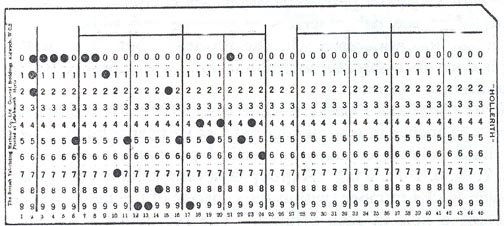 Neil
Postman
Neil
PostmanPaz, Octavio
but how precisely?
definitions | social changes | information revolutions | Socio-Cultural transmission | technical alterations
![]()
Themes in the Broken Defenses, chapter in Technopoly Postman; technology as a state of mind.
"Technopoly* is a state of culture" and "a state of mind" where social customs and traditions are swiftly changing or so indefinite that technical values replace moral thinking, technological systems replace institutional decision making, or technicians replace clergy, lawyers, or experts as the people who are looked to for guidance and authority to settle disputes, mediate conflicts, or achieve a desired result.
"Those who feel most comfortable in Technopoly are those who are convnced that technical progress is humanity's supreme achievement and the instrument by which our most profound dilemmas will be solved."
p. 71.
* technology and monopoly when added together meaning one source of meaning, power and control, grows out of technocracy.
- –Technopoly–thrives were the institutions to control information are weakened or
- – Technopoly–thrives where the meaning of words are misunderstood or undergoing revision,
- –Technopoly–thrives where there is no alternative authorities –as measures of value in a society– exert sufficiently widespread influence.
repetitive rhetorical technique.
"They also believe that information is an unmixed blessing."
p. 71.
Original punch-card for data entry of "information" in computer tabulation.
"The relation between information and the mechanisms for its control is fairly simple to describe: Technology increases the available supply of information. As the supply is increased, control mechanisms are strained."
p. 72.
Politics is thus transformed by technopoly into obedience to the dictates of the technicians; a sort of machinery of conformity and a necessary submission to the mechanics of everyday life.
Do see: David Hume's Chapter in Essay on Man.
"social institutions of all kinds function as control mechanisms."
"any decline in he force of institutions makes people vulnerable to information chaos."
p. 73.
"Social institutions sometimes do their work simply by denying people access to information, but principally by directing how much weight, and therefore, value one must give to information."
p. 73.
Courts and schools are example of information control venues.
p. 74.
"Cultural literacy ...represents, in fact, a case of calling the disease the cure."
definitions | social changes | information revolutions | cultural transmission | technical alterations
18th century theory of the family's role in society:
"the premise that individuals need emotional protection from a cold, competitive society."
p. 75.
"In the West, the family as an institution for the management of non-biological information began with the ascendance of print."
p. 76.
"The most imposing institutions for the control of information are religion and the state. They do their work in a somewhat more abstract way..."
p. 77.
"This is still another way of defining Technopoly. The term is aptly used for a culture whose available theories do not offer guidance about what is acceptable information in the moral domain."
p. 79.
Changes in society due to critical inventions that brought about a series of assaults that broke down traditional defenses and led to a rise of technopoly:
√ Telescopes, telegraph, telephones, punch-cards, ticker-tape, teletype, television, fax machines, IQ tests, computers, newspapers, radio, and film-making.
"Marxism, is in the process of decomposing."
p. 80.
"technical methods to control the flow of information."
"foremost among all technological solutions to the crisis of control."
"administrative tyranny" of "bureaucracy."p. 83.
C. S. Lewis called ours "the Managerial Age"
p. 84.
"The peril we face in trusting social, moral, and political affairs to bureaucracy may be highlighted by reminding ourselves what a bureaucrat does."
p. 86.
"Technopoly's experts claim dominion not only over technical matters but also over social, psychological, and moral affairs."
p. 87.
"There is no aspect of human relations that has not been 'technicalized' and therefore regulated to the control of experts."
pp. 87– 88.
definitions | social changes | information revolutions | cultural transmission | technical alteration
Information Revolutions that changed the presentation and content–and thus the very meaning–of the messages being conveyed:
| # | Period | Characteristics |
| 1. | Prehistoric | writing replaced aural / oral (spoken words) tradition: literate vs. illiterate. |
| 2. | 1530s | printing press: books became widely available and type was able to replace scribes and artists. Mass literacy. |
| 3. | 1880s | graphical arts: mass production of news, typewriters, photo journalism, telephone & telegraph, travel guides. |
| 4. | 1920s | electronic media (radio and TV broadcasting) entertaining, advertising and sales. |
| 5 | 1990s | WWW, digital code, and the internet exchanging sounds, photographs, data, video imagery, and words. |
| 6 | currently | Convergence of media sources and images to distract the consumers for commercial gain. |
definitions | social changes | information revolutions | cultural transmission | technical alterations | results
"efficiency, precision, objectivity," became paramount technical virtues
p. 90.
"In Technopoly, all experts are invested with the charisma of priestliness...are called psychiatrists, some psychologists, some sociologists, some statisticians."
p. 90
"As the power of traditional social institutions to organize perceptions and judgment declines, bureaucracies, expertise, and technical machinery become a principal means by which Technopoly hopes to control information and thereby provide itself with intelligibility and order."
"pain and stupidity that are the consequences."
p. 90-91.
Technologically advanced civilizations that experienced or are experiencing the impacts of each of the above information revolutions are not well equipped to deal with the pervasive and powerful influence technology exerts on traditional institutions.
Lesson:
We must pay attention & get smarter if we are to successfully adapt to automated machinery!
definitions | social changes | information revolutions | cultural transmission | technical alterations
Traditional sources of authority about the culture we are born into:
| Sources of influence | examples | Bacon's Idols |
| Sensory stimuli | hand-eye, mouth-tongue coordination | Cave |
| Family | morality, behavior, tone | Clan |
| Rituals | festivals, faith, emotion | Theatre |
| Education | reason, writing, attention | Marketplace |
| Profession | wages, benefits, attitudes | Theatre & Marketplace |
definitions | social changes | information revolutions | cultural transmission | technical alterations
Related to influences of technical complexes:
| Technical influences | example | suggested impacts |
| Electricity -- appliances | hand-eye, mouth-tongue coordination | Cave of instant gratification & expectations |
| Family car | morality, behavior, tone | Clan as defense against external threats |
| Television | festivals, faith, emotion | Theatre, passive spectator |
| Work | reason, writing, attention | Marketplace, labor valued by new skills |
| Consumer habituation | shop, benefits, attitudes | Theatre & Marketplace |
definitions | social changes | information revolutions | cultural transmission | technical alterations | conclusions
Technical mastery of machinery requires new techniques:
Automation has become an arbitrator of life and death, if not a hardly recognizable machine surrogate for family, friends, and even fantasies.
Machines initially, and then automatic devices dictate customs and rituals, act as an arbiter of intimate behavior and even replace our concepts concerning creation, deities, and religion.
![]()
From Technocracy to Technopoly
Postman Thesis | Postman: the rule | Postman Conclusions | Questions
Pursell | Pacey–Meaning | Pacey | Tenner | Postman–Tech | Postman–Television | Eberhart | Snow | Kaku




